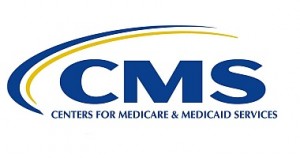CMS Calls on Primary Care for Better Health: We Couldn’t Agree More!
July 25, 2016 · Amy Maciejowski
CMS is taking major steps to strengthen primary care and give us better care at lower costs. A blog post by CMS leaders Andy Slavitt and Patrick Conway details what they are proposing in the annual physician fee schedule rule.
In 2014 alone, U.S. health care spending increased by 5.3% from the previous year, to $3 trillion, or $9,523 per person. That must stop. But how? CMS hints at a proven way to lower health care costs: primary care.
CMS described something we already know: people need to get the right care for them, at the right time—. For example, before the patient checks into a hospital. Now, how do we figure out what is the right care? By going to the source: the patient.
It All Starts With Primary Care
NCQA has been working on strengthening primary care for more than a quarter-century—not only in developing HEDIS measures (which CMS proposes to use in its new physician payment system), but also in the suite of patient-centered recognition programs that can transform primary care.
As the CMS blog states, “Health care costs are lower when people have a primary care provider and team of doctors and clinicians overseeing and coordinating their care.”
The better coordinated the care, the healthier the patient. NCQA’s Patient-Centered Medical Home (PCMH) program is built on this premise. The nation’s leading recognition program, it operates on three key principles: care coordination, team-based care and patient-centered care. A recent Annals of Emergency Medicine study found that NCQA PCMHs cut outpatient emergency department visits by 11% over non-PCMHs for Medicare patients.
NCQA-Recognized PCMH practices save an average of $265 of the annual total spent per Medicare beneficiary. CMS estimates that its new Medicare physician fee schedule could, over time, add as much as $5 billion in funding for care coordination and patient-centered care.
This is a win-win for practices, and Medicare beneficiaries, many of whom have already reaped the benefits of better coordinated care, if they are enrolled in a PCMH.
Time Is Money
CMS’ payment proposal updates the adage, “time is money.” With the new physician fee proposed rule, doctors will be paid more for their time. Spending more time with patients—and listening to them—doesn’t mean money lost, it means having more conversations. Having more conversations makes it more likely that doctors and patients will be on the same page, formulating decisions about care together … which will lead to better care and better outcomes. NCQA’s work with PCMHs is a testament to this.
We look forward to working with CMS and all our clinician partners in this venture.








